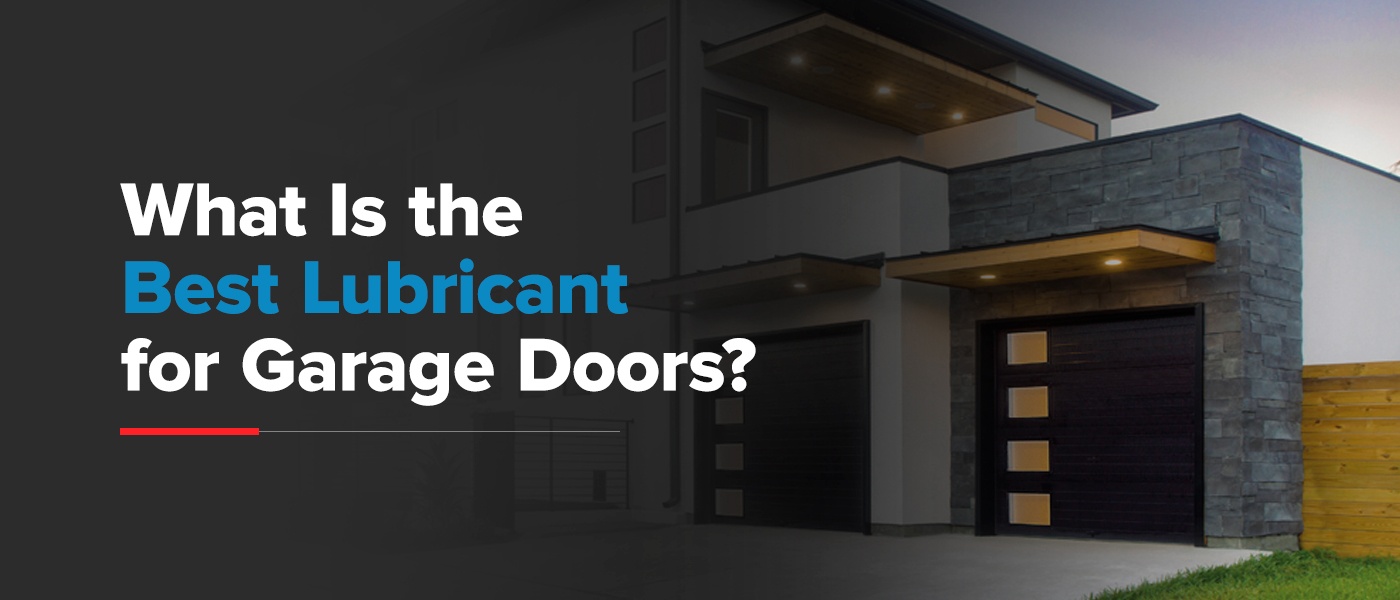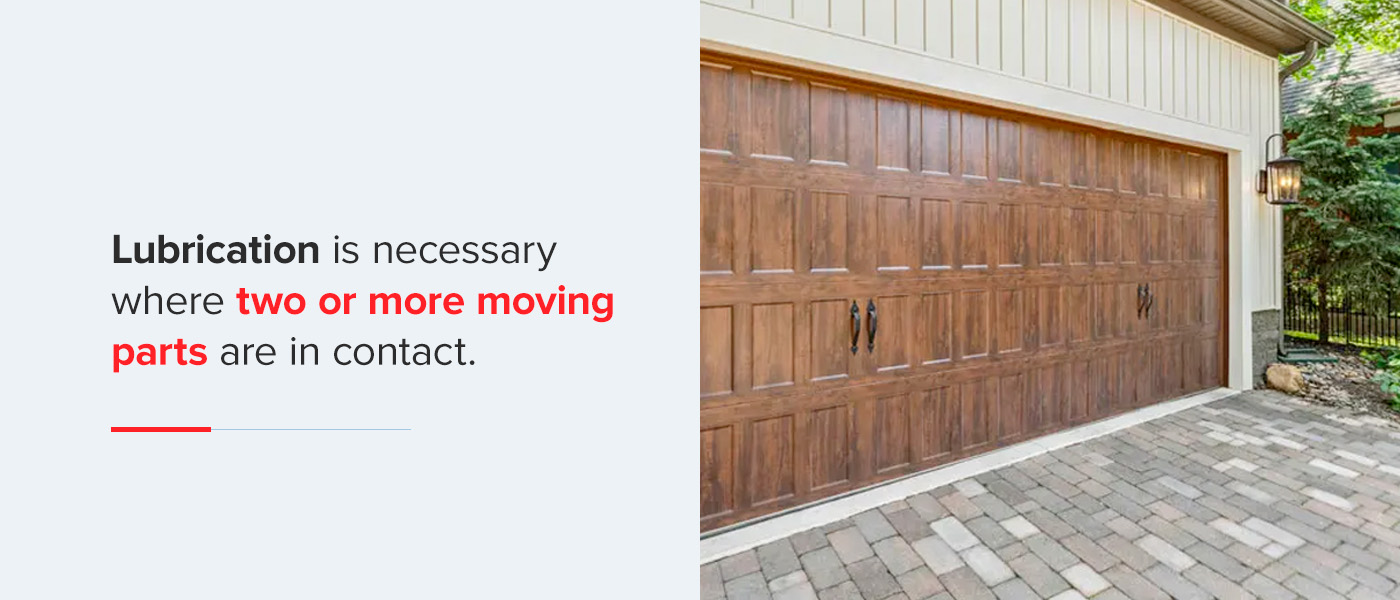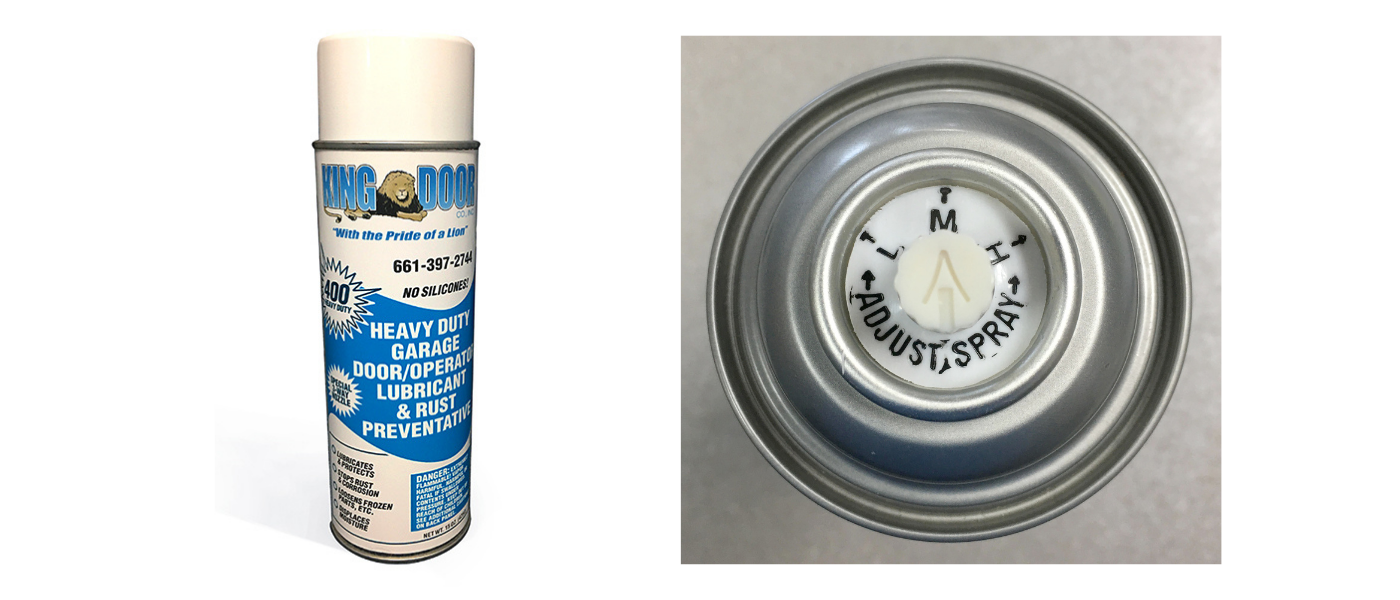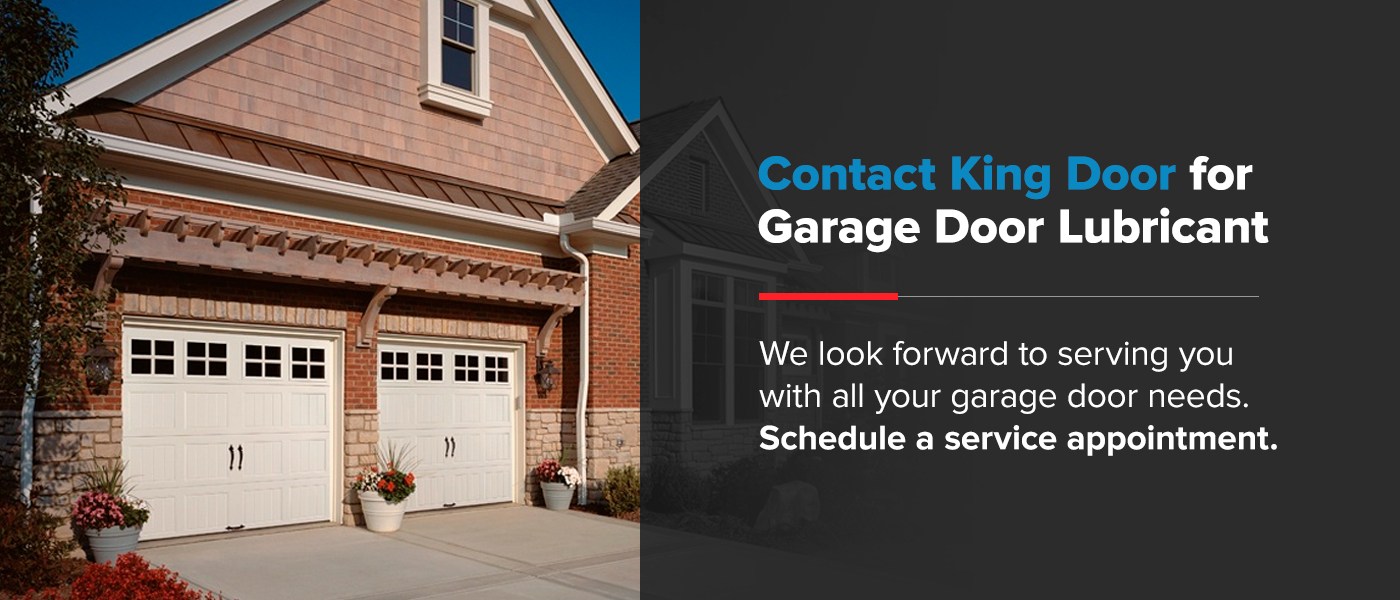Residents in California’s Kern County understand the value of garage doors in their daily lives. For many families, garage doors are the main entryway and exit point of the house, opening and closing many times per day. That’s why proper garage door care is essential, and it all starts with garage door lubrication.
But what is the best garage door lubricant? Are there any advantages of garage door lubricant? The experts at King Door have answers to these questions and more. Read on to learn about the best types of garage door lubricants and why you need to regularly lubricate your garage doors.
What Is Garage Door Roller Lubricant?
Garage door lubricant keeps door components operational while reducing stress. With proper lubrication, the garage door will open and close like normal without breakdowns or other issues.
Lubrication is necessary where two or more moving parts are in contact. Garage door metal parts have sharp edges that can remove material from other parts, compromising the structure. This product also prevents dirt and dust from gathering in the connected parts. Otherwise, the debris could cause the door to jam and be inoperable.
Types of Garage Door Lubricants: Silicone vs. Petroleum
When lubricating your garage door, you may want to grab your trusty can of WD-40 or a similar product, but this will give you undesirable results. These products are penetrating oils, which makes them excellent for cleaning rust and grime off moving components, but that’s where their benefits end. When lubricating your garage door, you should use a product with a petroleum base instead of silicone.
Problems With Silicone-Based Lubricants
Although silicone lubricant is a popular option for garage doors, this base is not the best option you can use when lubricating your garage door. Homeowners with a lack of familiarity with silicone as a lubricating agent may be unaware of the potential damage it can cause.
Despite its alleged benefits, such as long-lasting durability in temperature and weather changes, silicon-based sprays can damage your car’s paint, leaving craters. This damage — commonly called fisheye — is when debris like silicone, wax, dirt, and oil gets stuck under the paint, causing spots or bubbles.
Advantages of Petroleum-Based Lubricants
Our research shows that the non-silicon spray — such as a petroleum-based lubricant — is the best option with 53% more oil. White petroleum garage door grease is the standard lubricant for metal parts because it preserves the integrity of garage door components and has weather-resistance capabilities. This product gives you full control over how you apply it to your garage door’s components, despite having to use your hands.
You can work it into your garage door’s metal rollers, tracks, bearing plates, locks, arm bars, springs, hinges, bearings, or any part making any noise, providing an even coat. After you do so, your garage door will open and close like a charm. This lubricant is ideal for heavy-friction doors in a moderate climate that see frequent use.
Since white petroleum grease adheres well to metal, it’s not going anywhere once you apply it. Petroleum grease cannot soak into the metal, so there will always be a layer of lubrication between the metal parts. Avoid overapplying, as this can attract dirt and dust. A small amount of white petroleum grease goes a long way to having a healthy garage door.
Petroleum-based lubricants come in the form of white petroleum grease. Your local hardware store or garage door specialist may sell grease for garage doors in squeezable tubes, canisters, or containers with lids. Petroleum spray lubricant for garage doors may be available, but it is less common than the hand-application varieties. That means you’ll have to get your hands messy while applying it, but among leading garage door lubricants, white petroleum grease will provide satisfying results.
Forms of Garage Door Lubricant
Lubricants for garage doors are available in many forms, each ideal for different door components. The lubricant type you’ll choose will depend on which is the easiest to apply for your needs.
The most common forms of garage door lubricant are greases and sprays. Greases are applied directly to the component using a rag or by hand. Since this lubricant stays on the metal surface, it serves as a friction-reducing buffer between parts. Sprays are sprayed onto internal parts, like springs. They penetrate the mechanics deeper, keeping garage door machinery lubricated.
Other lubricant forms include oils and foams, which are available in a container or spray bottle and are safe to use.
The Best Garage Door Lubricant
King Door Heavy-Duty Garage Door/Operator Lubricant and Rust Prevention Spray is the preferred garage door lubrication for Bakersfield, California residents. This lubrication can is specifically designed for garage door maintenance. The cap is adjustable so you can control the amount of garage door spray lube you desire and for accurate application. You can choose to spray on heavy with a strong beam-like spray, or you can spray on medium for broader coverage and lite with minimal mist-like coverage. These options help eliminate any unwanted overspray.
At King Door, we stay up-to-date on new innovations to continue improving our products. When purchasing lubrication, you can be sure that our lubricant and rust prevention spray is the best solution for your garage door.
How Do You Lubricate a Garage Door?
If you’re new to lubricating your garage door, follow this checklist to guide your process, and take it one component at a time. Some materials you’ll need include:
- A couple of shop rags nearby to wipe away any excess
- Drop cloth or tarp to protect the floor
- Stepladder to access out-of-reach components
Here are the main parts of your garage door you should lubricate:
- Springs: Your garage door’s springs expand and contract with each use. You must lubricate your garage door springs to keep them from breaking and prevent the door from sticking or jamming. Locate your garage door springs overhead and lubricate their entire surface. Since you want full coverage, the best lubricant for garage door springs may be hand-applied white petroleum grease.
- Rollers: Find the rollers on the sides of your garage doors. They’re the little metal or plastic wheels that roll through the tracks when the garage door opens and closes. Rollers need lubrication to keep the door moving and prevent it from jamming while in motion. Lubricate the metal parts of the rollers, specifically the inside where the wheel bearing sits and where the shaft meets the roller. The bearings may be challenging to lubricate by hand, so spray might be your best option for lubricating garage door rollers.
- Hinges: Your garage door’s hinges allow the panels to fold and unfold day after day and carry the door’s tension. Keep them lubricated to guarantee smooth functioning. You can use white petroleum grease for this step to avoid dripping on your garage door panels. This stage could be when those shop rags come in handy.
- Locks: If your garage door has locks, keep the locking mechanism lubricated to avoid a sticky or frozen lock. Spray-type lubricant is best for lubricating garage door locks because the thin spray nozzle can access the locking mechanisms. Blast the lubricant into the key slot and locking shafts, then wipe away any excess with a rag.
Once you’ve finished these steps, open and close your garage door a few times in a row to work the lubricants into the components.
Benefits of Using Garage Door Lubricant
Why go through the hassle of lubricating your garage door in the first place? Lubricating your garage door every year can go a long way in extending the life of your garage door and automatic opener. Here are a few benefits of using garage door lubricant:
- Volume levels: Is your garage door louder than it used to be? That could be a result of metal pieces grinding together, forcing the opener to work harder. You could enjoy a quieter opening experience after lubricating the above components.
- Smooth operation: Friction between parts of your garage door can cause the opener to struggle. If you have two garage doors, you may be wondering why the one you use daily opens more slowly than the one you only use once a week. That’s because more use equals more friction between moving parts. After lubricating your garage door, your opener may work faster than it did before.
- Longer lifespan: Neglecting to lubricate your garage door can lead to compounding issues. One problem leads to another until you have expensive repair costs to deal with. Lubricating your garage door will protect the door’s essential components like springs, rollers and hinges. This DIY task will remove unnecessary stress on your opener. Everything will work in harmony, extending the life span of your entire garage door system.
Frequently Asked Questions About Garage Door Lubricants
Here are the most frequently asked questions we answer about lubricating garage doors:
How Often Should You Lubricate Your Garage Door?
You should lubricate garage door components every three to six months. Since using your garage door wears away the lubricant, reapplying it is necessary. The frequency depends on how often you use your garage door, its position, and the weather conditions. Your lubricant’s application instructions will likely provide a reapplication recommendation you can follow.
How Much Lubricant Is Needed for a Garage Door?
The amount of lubricant needed to keep your garage door operational depends on the type, where it’s applied, and how much area the lubricant covers. You need a small amount of grease- and oil-type lubricants, as a little goes a long way. A small container could last for years if properly stored. You may need more lubricant if you use the spray type, as it requires more frequent application.
Is Garage Door Lubricant Easy to Apply?
Garage door lubricant is easy to apply and delivers quick results. Spray-type lubricants are the most straightforward to use — you can spray the lubricant where needed, and no cleanup is required. Grease-type lubricants take more effort, as you need to apply them with your hand or a rag.
Contact King Door for Garage Door Lubricant Today
King Door in California is Kern County’s solution for garage door repair, services and installation, including garage door lubrication. We’ve been in business since 1985, allowing us to get to know our neighbors and provide high-quality, individualized service. Our professional technicians have a reputation for being clean, prompt and professional.
Come visit our 4,000-square-foot showroom to meet our knowledgeable and friendly staff. Or, you can contact us online for more information. Schedule a service appointment or request an estimate today. We look forward to serving you with all your garage door needs.





